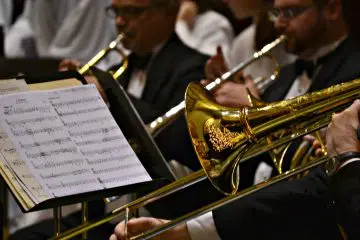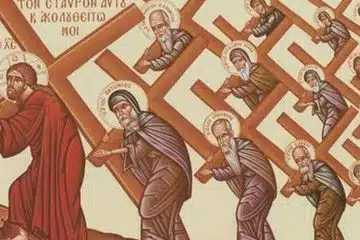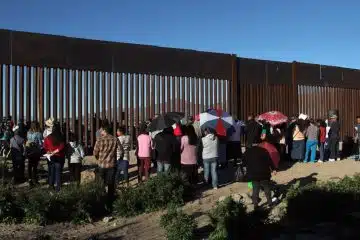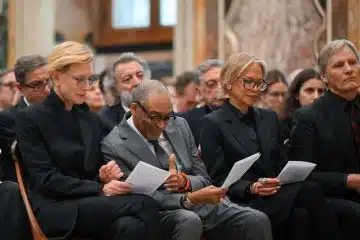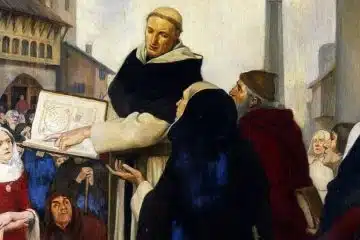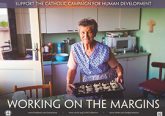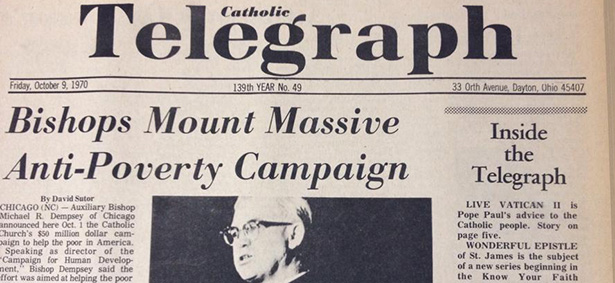Catholic Campaign for Human Development empowers locally, nationally
Wednesday, November 18, 2009
By David Eck
ARCHDIOCESE — Early next year a small group of young adults, primarily from three housing facilities in Cincinnati’s Winton Terrace neighborhood, will began one-on-one assessments designed to help them become self-sufficient.
Called “First Step,” the program will identify their values, interests, hobbies and the barriers that are keeping them from reaching self-sufficiency. Their academic level and work histories will also be assessed. A plan to help them get off of public assistance will be developed and implemented.
“We’re not babying them. We’re not excusing them,” said Betty Richard, executive director of the Winton Hills Senior Computer Project, from which First Step was hatched. “(They’ve) got to buy into it. Everybody will move at their own pace. It takes time.”
For the last several months the organization, which is in the process of changing its name to the Winton Hills Opportunity Connection, has been putting in place the infrastructure to launch First Step using a grant from the Catholic Campaign for Human Development (CCHD).
The $5,500 was seed money.
“It meant everything,” Richard said. “It was a good jump to get started.”
 |
| Jeff Latta picks pumpkins outside his house in Albany, Ohio, in early September. He grows them and sells them for extra money to help him stay current on his mortgage. The U.S. bishops’ Nov. 21-22 Catholic Campaign for Human Development collection will focus on helping families still struggling in tough economic times. (CNS photo) |
Seniors citizens who live in the housing facilities started the computer project about six years ago to provide computer access and instruction to older residents of the facilities. They will help with First Start. The computer project, a brainchild of Betty Gazaway, will also continue.
“The seniors will be part of the assessments. We want to bring the seniors and the young adults together because each group has something to give,” Richard said. “They know the young people in the community. The young people know them. They know the issues that some of these young adults are experiencing, so that’s where they came up with the idea.”
Programs like First Step, in which those benefiting are active participants in operating the organization, are prime examples of those funded by CCHD, said Tony Stiertz, director of the archdiocesan Social Action Office.
“This was completely initiated by the people living in the housing projects,” Stieritz said. “Our funding has enabled them to get started.”
Empowering low-income people to help themselves is what helps make CCHD funding unique.
“Every organization has to be in line with Catholic teaching,” Stieritz said. “What really defines a CCHD-funded organization is that it organizes low-income people to be the agents of change. It’s training low-income people to be the ones to improve their own situation.”
Another example of CCHD funding can be found in Middletown, where a group is helping unemployed people develop computer skills, obtain a general equivalency diploma and assisting them in enrolling in technical schools and colleges.
Still another example is an employee-owned and run janitorial service that hires low-income people.
“These are all grassroots organizations,” Stieritz said. “Catholic teaching teaches that participating in your own betterment is part of human development that God wants to see for all of us, so the collection is aptly named.”
The CCHD collection, which dates to 1970, is held in dioceses nationwide. The overall collection in the Cincinnati archdiocese can be anywhere from $350,000-500,000. Two-thirds of the funds collected in each diocese are sent to the national campaign, while the remaining third is distributed locally. A portion of the local money is also sent to the Black and Indian Mission fund.
A 12-member committee made up of lay people from across the archdiocese reviews about 30 applications for the local share each year and approves grants of between $5,000-10,000. Typically 15 or so organizations each year receive funding. Half of the grant is disbursed to each organization in July, 33 percent in January and the final 17 percent is given in June.
“We know who these people are,” Stieritz said. “We also require midyear and yearend reports to hold them accountable to the goals they set forth on their original application.”
The Catholic Campaign for Human Development is an enterprise of the United States Conference of Catholic Bishops and enjoys the full approval of Archbishop Pilarczyk and the other bishops of our country. Archbishop Pilarczyk urges “the faithful of the archdiocese to exercise their usual generosity for this cause this coming weekend, November 21-22.”
(See related editorial: ‘Families are struggling. Faith is calling.’)
The national collection, themed “Families are struggling. Faith is calling,” will be taken up in most U.S. Catholic churches the weekend of Nov. 21.
“This year, our call as Catholics to bring glad tidings to the poor … to proclaim liberty to captives and recovery of sight to the blind, to let the oppressed go free is more important than ever before,” said Bishop Roger P. Morin of Biloxi, Miss., who is chairman of the U.S. bishops’ CCHD subcommittee.
He made the comments in a letter to parishes asking Catholics to be as generous as possible during the annual collection that is the primary source of support for the U.S. bishops’ domestic anti-poverty program.
Twenty-five percent of the proceeds support projects in the diocese where the funds are collected.
“The mission of CCHD is crucial in 2009 — to uplift and embolden all who are one layoff or one medical scare away from the poverty line — and all who are already there,” the bishop said.
The nation’s current economic crisis has left many families and individuals without the security of a job, health care or a sufficient retirement fund, a press release on the collection noted.
According to U.S. census figures, the number of people currently living in poverty is estimated at 39.8 million, which is almost 3 million more than a year ago. The unemployment rate reached a 26-year high of 9.8 percent in September.
For nearly 40 years, CCHD has funded community groups that create affordable housing, obtain fair wages and provide job training, as well as organizing projects led by low-income individuals to help people and resolve problems in their communities.
CCHD-funded programs “empower the poor and marginalized to make decisions, seek solutions to local problems and find ways to improve their lives and neighborhoods,” according to the agency. CCHD also has educational programs to teach Catholics about poverty and creates opportunities for them to interact with the poor and reflect on a faith response to poverty.
Last year CCHD awarded more than $7.7 million to 250 grantees throughout the U.S.; 776 Catholic parishes, 18 Catholic charities organizations and 51 religious communities were involved in CCHD-funded groups.
Among the recipients was the Diocese of St. Petersburg, Fla., which received a grant to support the Faith and Action for Strength Together project that involves member parishes and other member congregations in working on issues related to education, transportation and affordable housing.
Another recipient was the Chicago archdiocese’s Progress Center for Independent Living, which empowers people with disabilities to live full, rewarding lives outside institutions.
The New York archdiocese received a grant to support Movimiento por Justicia en El Barrio, which works with more than 400 primarily Mexican immigrants to focus on tenant issues and have ongoing negotiations with the Mexican consulate, aimed at improving services to New York City’s Mexican immigrant population.
See related story: Bishops: No CCHD funds go to groups that oppose church teaching



